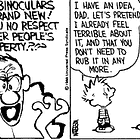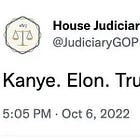On Bartolo Colón and Goodness
A Father's Day reflection on celebrity and character
Bartolo Colón has been in the news lately. Earlier this month, a report surfaced that the 21-year MLB veteran was finally making his presumed retirement official, five years after he last pitched in affiliated ball. Colón’s agents then denied their client was retiring, which caused a minor murmur of its own. Ordinarily it would go without saying that a 50-year-old hurler with an ERA over 6.00 in his last two MLB seasons was not positioned for a comeback. But when you’re talking about a pitcher who played for six more seasons after his second PED scandal, eight more seasons after missing a year to recover from an experimental surgery, and ten more seasons after he first signed a minor-league free agent deal because the industry thought he was washed-up — a man who earned two All-Star selections, multiple Cy Young votes, and over $40 million after his 40th birthday — you never say never.
Whenever Colón hangs up his cleats, he will retire as one of the most-beloved personalities in baseball. To say he is a cult hero seems uncontroversial, since publications as authoritative as MLB.com and the Society of American Baseball Research (among many others) have already described him as such. That’s no small feat in a conservative sport that expects athletes, especially athletes of color, to shut up and play. It's also notable to achieve such status as a starting pitcher who has far fewer chances to connect with fans than everyday players. And of course it’s rare for a player to remain popular even when he sucks for an extended period of time, as Colón did for the heretofore-last years of his career.
Part of Colón’s charm was (is?) how his pitching style contrasted with the league’s increasingly homogenous approach to run prevention. Modern pitching orthodoxy, driven by data-driven insights into the most effective ways to get batters out, has some clear characteristics: More velocity, more breaking balls, more strikeouts. Ironically, Colón embodied these traits when he first arrived in the Majors. His fastball used to reach the triple digits, and in 2000 he trailed only a height-of-his-powers Pedro Martínez for the most strikeouts and highest K/9 in the American League. By the end of his career (for now) his velocity had declined so precipitously that he failed to hit 90 mph in his last five outings. Yet of the 92 MLB pitchers who have thrown 1,000+ innings since his return from stem cell surgery in 2011, no one has leaned on their fastball more than Colón did on his lukewarm heater, and it’s not particularly close. He went right after hitters with his predictable, seemingly pedestrian arsenal en route to the lowest walk rate of that cohort. Unsurprisingly, he didn’t get many strikeouts this way (behind only deserving Hall of Famer Mark Buehrle among this group on a rate basis), but his old-school approach made him a legitimately effective pitcher up to age 43, as well as a fan favorite.
Despite the plausible baseball explanations, the honest driving factor behind Colón’s cult following is that he is fat. Your mileage may vary on whether his “Big Sexy” nickname is body-positive or condescending. (The incessant mentions of his weight, even from analysts ostensibly focused on his on-field performance and from fans who would tell you they reject our cultural obsession with body image, always read to me as tokenizing.) His combination of a happy-go-lucky persona and a large physique in a sport culture where neither is common is ripe for caricaturization: “jiggles and smiles,” to use one illustrative contemporary description. Lovingly or demeaningly, perhaps both, by the (presumed) end of his career the sport had come to see Colón more as a mascot than a player, less Phil Niekro than Phillie Phanatic.
Father’s Day is hard for me. A year ago this week, I wrote about my longstanding estrangement from my dad. You may not care about what I’ve been through, and that’s okay, but based on the unexpectedly large number of readers who told me that my story resonated with them, it’s a virtual certainty that people in your life have experienced something similar.
In the immediate aftermath of our falling-out, nothing was more devastating to me than seeing other parts of my dad’s life go on as if nothing had changed. I realized as the hurt grew less raw that it was neither healthy nor practical to expect everyone in his orbit to understand my pain. The world keeps turning. But even years later I feel compartmentalized. I’m embarrassed to admit that I sometimes still wonder if or what his friends know about me, and how it changes their perception of him; if his estrangement from his son is just an icebreaker-level fact about him, like his aversion to Mountain Dew. It hurts to think that there are people who see my dad not just as someone they enjoy spending time with or who has offered them kindness but as a good guy. That I am so insignificant that the way he treated me is irrelevant to judging his moral character.
Bartolo Colón was in the news a few years ago too, right around the time things blew up with my dad: a procedural error outed Colón as the anonymous defendant in a child-support lawsuit. Colón, who has four kids with his wife of now nearly three decades, also fathered two children, whom he was allegedly not supporting financially, with another woman. Exactly what happened is not for us to know, but the fact that the affair resulted in multiple children indicates it was longer and deeper than a mere fling. It’s hard not to imagine that this situation caused immense pain for both of Colón’s families.
For whatever reason, this revelation did no lasting harm to Colón’s teddy-bear image. (Neither did his suspension for doping, further illustrating how arbitrary the historical moralizing around PEDs is.) While baseball has gotten better at acknowledging its stars’ transgressions, even current players who commit sordid scandals don’t always incur sustained reputational consequences, as with Miguel Cabrera (who had a secret family of his own) being arrested for domestic violence and Marcus Stroman echoing Kyrie Irving’s anti-Semitism. In Colón’s case, perhaps it’s as simple as the fact that his wife already knew about the second family and stood by her husband. (I don’t expect universal sympathy for the woman with whom Colón cheated, especially in the context of her suing for child support, though I would at least suggest you consider that we don’t know what she knew when about his life and intentions.)
I’ve long wondered how Colón’s children see their father’s cult of personality. Subsequent reports revealed that the kids had all met by the time the situation became public, suggesting some form of at least awkward acceptance among those involved. But the road to reconciliation is rarely linear, and the mere existence of the lawsuit indicated lingering acrimony. The story broke shortly after the media circus surrounding Colón’s first career home run — perhaps the most-unlikely homer in recent baseball history — had subsided. Had Colón’s children by marriage forgiven their dad’s betrayal by the time he became the toast of baseball? Two years later, when every fan with an MLB.TV subscription tuned in to watch Colón’s underdog no-hitter bid against the reigning-champion Houston Astros, was his second family rooting for him to make history? Or was it a relief when Josh Reddick doubled in the eight inning, sparing them from a news cycle of dissonant praise for a man who needed the threat of legal pressure to provide for them?
That even a few people have sufficient distance from how my dad broke my trust to judge his character on other grounds has kept me up at night. What is it like when fans of the person who hurt you number in the millions?
I’m not trying to cancel Bartolo Colón. His misdeeds are unfortunately small potatoes in the grand scheme of athlete scandals, both past and present. For all I know, both his families have fully forgiven him, or at least are at now peace with how things have evolved in the intervening years. Even if they haven’t, maybe a full accounting of his charitable efforts and the joy he brought to his fans against his private sins would show that he’s put more good for the world than harm.
What I’m suggesting in the run-up to Father’s Day, and for every day, is that we be more mindful of whom we marginalize through our adulation — whether our idols are powerful leaders, famous celebrities, or private citizens; whether you have their bumper stickers, their autographs, or just their phone numbers; whether their sins reflect major societal ills or mere small-scale cruelties.
There’s a very fine line between appreciating someone’s deeds independent of their character and retconning personal decency onto them because you’re a fan of their work. That your relationship with a celebrity is parasocial does not mean the harms they may have committed are not real. Those around you for whom the pain is not abstract notice what transgressions you think are compatible with goodness. Here’s to the dads who raise their kids to be better than that.





